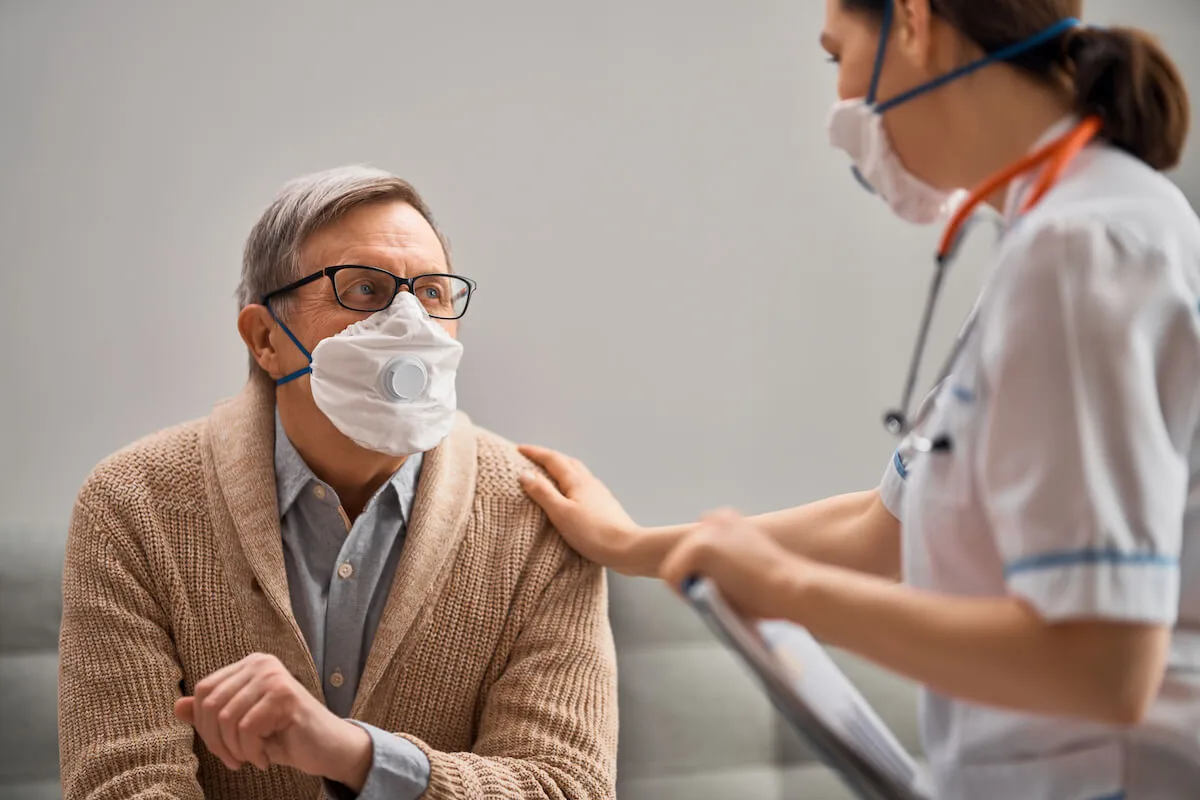
Image via Shutterstock
The Pennsylvania Department of Health has 131 public health nurses, which is down from 177 nurses in 2012, according to one analysis.
As states begin to see success in flattening the curve of new cases, calls to reopen the economy and ease social restrictions are growing louder. But one major roadblock in Pennsylvania, according to a new report from Spotlight PA, is the shortage of public health nurses.
Experts agree that to safely open up the economy, the U.S. will have to engage in a massive campaign of contact tracing and testing for the coronavirus—and public health nurses are a big part of that.
Public health nurses work at a local level in state, county, and city health departments locating individuals with different infections. Through their work, they can spot early outbreaks of infectious diseases like HIV, tuberculosis, or COVID-19. By interviewing those who have a confirmed diagnosis, these health workers can trace an individual’s contacts and try to limit the spread.
Locating individuals and identifying their contacts can make quarantines more accurate, and in certain cases they can avoid future outbreaks altogether. With accurate contact tracing, more people are able to go about their daily lives and less of the economy is disrupted. The model is widely used in South Korea, Taiwan, and Iceland, which have seen far less severe outbreaks of COVID-19 than the United States.
As Spotlight PA points out, though, Pennsylvania has repeatedly cut health budgets over the years and slashed positions that are now desperately needed to ramp up contact tracing.
“They always say, ‘We’ll hire nurses when we need it. We’ll get resources when we need it,’” Joanne Namey told Spotlight PA. Namey worked as a public health nurse for 35 years in Northeast Pennsylvania.
Putting off finding people for those positions has led to an increasingly dire situation as states look to use contact tracing to reopen their economies.
Gov. Tom Wolf told reporters last week that the state currently has not found a way to fill those positions. “We don’t have a lot of good leads on that at this point. We certainly don’t have a budget,” he said.
There have been calls to the federal government to help create a new national contact tracing force, but so far that job has been left to the states.
The Pennsylvania Department of Health has 131 public health nurses, which is down from 177 nurses in 2012, according to Spotlight PA. The nurses are responsible for overseeing the health of 60% of the state’s population—that means about one nurse for every 56,000 people.
The state is still working to come up with plans to bolster contact tracing. Reports indicate that the state is looking into recruiting additional staff or using technology. Officials said that an additional 16 employees from the department’s epidemiology and hospital-acquired infection teams are helping with tracing as well.
“Public health is successful when nothing’s happening,” Walter Tsou told Spotlight PA. Tso serves as executive director of Physicians for Social Responsibility Philadelphia and former head of the Philadelphia and Montgomery county health departments. “When we don’t have disease outbreaks, when water is clean and air is not polluted, and food is nutritious. But no one gives credit to the people who work behind the scenes to make that happen.”

For Rep. Susan Wild, supporting PA families includes reproductive rights and much more
Rep. Susan Wild wants to be very clear with Pennsylvanians: Donald Trump is committed to taking away women’s reproductive freedom, but he is not...

School districts working with anti-LGBTQ groups can cost your kids’ schools millions
Parents across South Central Pennsylvania are worried about the potential financial impacts working with anti-LGBTQ groups may have on their school...

VIDEO: Trump distances himself from his anti-abortion views
Donald Trump appeared on WGAL on Tuesday and continued to distance himself from his anti-abortion views claiming that reproductive rights are now a...

VIDEO: Community pushback gets school board to rescind decision on denying gay actor’s visit
Cumberland Valley School Board offered a public apology and voted to reinstate Maulik Pancholy as a guest speaker a week after the board voted to...

VIDEO: Project 2025 brings nuclear armageddon back into vogue
Project 2025 is a titanic document, with plans ranging from cutting half of all government employees to targeting reproductive rights on a scale...




